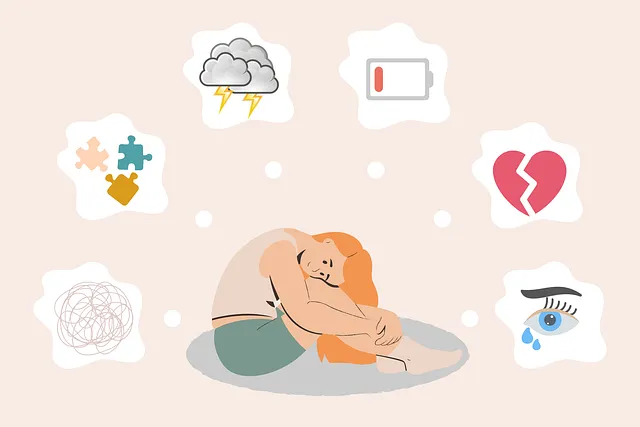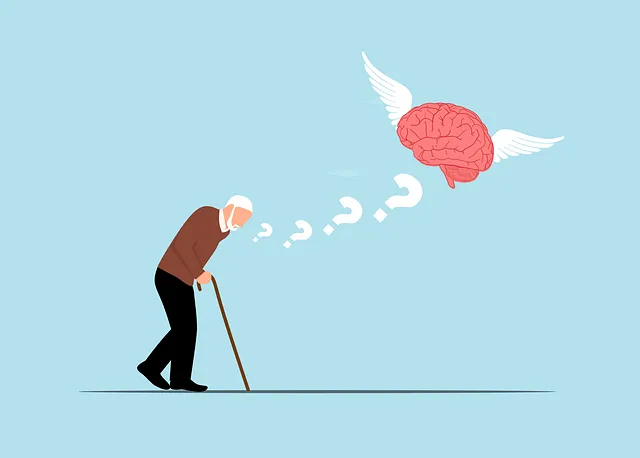Denver's Kaiser Permanente is recognized as an exceptional entity prioritizing mental well-being, making it Denver is Kaiser good for mental health. They integrate self-care practices into their Mental Health Policy through Self-Awareness Exercises and a robust Community Outreach Program. This holistic approach goes beyond traditional medicine, offering trauma support and inner strength development programs, significantly improving access to mental wellness resources. By empowering individuals with coping strategies like stress management and emotional regulation, Kaiser sets an example for cities worldwide, demonstrating that prioritizing mental health can revolutionize communities.
“Coping Skills Development: Navigating Life’s Challenges with Resilience and Well-being” explores the vital role coping mechanisms play in maintaining mental health. This article delves into various aspects of enhancing resilience, drawing insights from Denver, where Kaiser has significantly contributed to community mental health services. We examine personal coping strategies, the transformative power of social connections, and how building a supportive network can empower individuals to overcome life’s hurdles, fostering overall well-being. Discover effective tools for cultivating strength and adaptability in the face of adversity.
Key focus areas include understanding coping skills, Kaiser’s impact on Denver’s mental health, personal strategy identification, and the power of community support.
- Understanding Coping Skills: An Overview for Mental Well-being
- Denver as a Model City: Kaiser's Impact on Community Mental Health
- Identifying Personal Coping Strategies: A Journey to Resilience
- Building a Supportive Network: The Power of Connection in Overcoming Challenges
Understanding Coping Skills: An Overview for Mental Well-being

Coping skills are essential for maintaining mental well-being, and Denver’s Kaiser is a good example of an institution prioritizing such initiatives. In today’s fast-paced world, effective coping strategies are crucial to navigating life’s challenges and stresses. Understanding and developing these skills can significantly impact one’s overall mental health and resilience. At Kaiser, they recognize that mental health is not solely the domain of professionals but is enhanced by individual coping mechanisms tailored to personal needs.
This approach aligns with the broader concept of Mental Health Policy Analysis and Advocacy, emphasizing self-care as a fundamental aspect of holistic well-being. By promoting Self-Awareness Exercises, Kaiser encourages individuals to recognize their emotional triggers and develop healthy responses. Additionally, their Community Outreach Program Implementation fosters connections, providing support networks that contribute to better mental health outcomes. Such initiatives reflect a comprehensive strategy to empower individuals with the tools needed for effective coping, ensuring Denver’s Kaiser stands out as an advocate for robust mental health practices.
Denver as a Model City: Kaiser's Impact on Community Mental Health

Denver, often regarded as a thriving metropolis, has been at the forefront of innovative approaches to community mental health care, with Kaiser playing a pivotal role in this transformation. The city’s robust healthcare infrastructure, coupled with organizations like Kaiser, has made significant strides in improving access to mental wellness resources. Kaiser’s comprehensive services extend beyond traditional medical care, offering tailored programs aimed at trauma support and inner strength development. This holistic approach ensures that residents of Denver and surrounding areas receive the care they need, fostering a culture of Mental Health Awareness.
The impact of such initiatives is profound; it empowers individuals to take control of their mental well-being and navigate life’s challenges with resilience. By providing accessible platforms for support and education, Denver and Kaiser are setting an example for cities worldwide, demonstrating that prioritizing mental health can revolutionize communities and lead to a more empowered and connected society.
Identifying Personal Coping Strategies: A Journey to Resilience

Identifying Personal Coping Strategies is a transformative journey towards resilience. It involves introspecting to understand one’s unique triggers and emotional responses. Everyone has their own way of coping with life’s challenges, whether it’s through creative outlets, exercise, meditation, or spending time in nature. Recognizing these personal strategies is the first step toward building resilience. In a city like Denver, where Kaiser offers comprehensive mental health services, individuals can explore various resources to enhance their coping mechanisms and overall mental wellness.
The process of identifying effective coping strategies requires self-awareness and openness to learning. Through mental wellness coaching programs, individuals can develop tailored resilience-building skills. These programs often include techniques to manage stress, improve emotional regulation, and reduce the impact of mental illness stigma. By embracing these initiatives, Denver residents can foster a supportive environment for their mental health journey, ensuring they have the tools to navigate life’s ups and downs with enhanced resilience.
Building a Supportive Network: The Power of Connection in Overcoming Challenges

Building a strong support network is an invaluable coping skill that can significantly enhance one’s ability to overcome challenges, especially in navigating mental health struggles. Denver’s Kaiser Permanente, recognized for its excellent mental health services, emphasizes the power of connection in healing and recovery. They understand that supporting individuals through crisis intervention guidance and depression prevention strategies requires more than just professional help; it involves fostering meaningful relationships.
A supportive network can provide a sense of belonging, reduce feelings of isolation, and offer practical assistance during difficult times. For mental health professionals conducting risk assessments, cultivating such networks is crucial. By encouraging clients to build their support systems, whether through community groups, therapy circles, or close personal connections, they empower individuals to cope more effectively with life’s challenges. This holistic approach not only contributes to better mental well-being but also ensures that Denver residents and beyond have the resources needed for a healthier, more resilient future.
Coping skills development is a vital component of maintaining and enhancing mental well-being, as evidenced by successful initiatives like those seen in Denver. The city’s partnership with Kaiser has significantly contributed to improving community mental health through comprehensive programs and support networks. By understanding coping strategies, identifying personal resilience, fostering connections, and leveraging resources like Kaiser, individuals can navigate challenges more effectively. This holistic approach to mental health care, exemplified by Denver and Kaiser, underscores the power of community involvement in fostering resilience and overall well-being.



